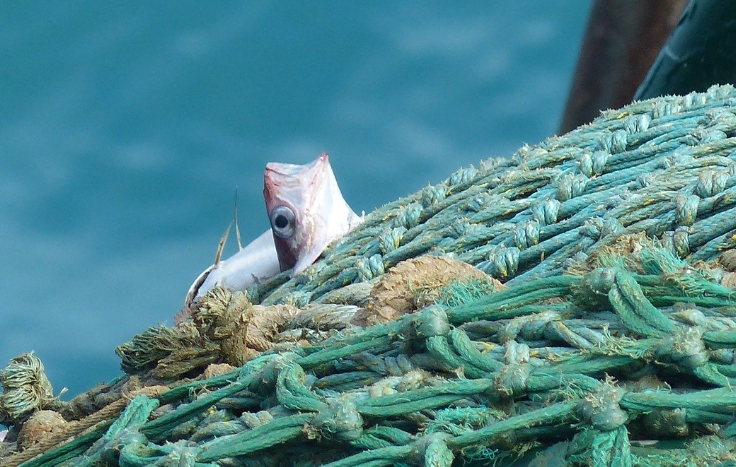
4 Jan
Abandoned fishing gear is a major threat to the safety of Canada’s marine environment
Astronomical quantities of fishing gear are lost or abandoned in Canadian waters. Threads, nets, traps and ropes account for 70% of all micro plastics in the oceans by weight. These ghost gears also threaten the right whale.
Marine pollution from the fishing industry is significant in Canada. In the last year alone, 4,105 pieces of gear were lost according to Fisheries and Oceans Canada. The worst sector of the industry is lobster, which accounts for 80% of lost gear. A fact that does not spare Madelinot fishermen.
“The lockers will hook in the bottom and you can’t lift them. The current, and the bad weather, and the size of the boats cause them to be broken from time to time, ” says the president, regrouping of fishermen and fishermen from the coasts of the islands (RPPCI), Charles Poirier.
Quebec has the worst record with 1,829 gear units lost, which corresponds to 44.5% of the losses for the whole country. For lobsters, it is mainly cages that remain stuck in rocky bottoms. The cables currently used by lobster boats have a resistance of 2000 lbs. Right whale protection measures could cause a reduction in the resistance of cables, which should increase pollution.
“If we go with what the government wants to force us to do, which is 1,700 test pounds, we will lose them more easily and there will be a lot more phantom gear to recover,” concludes the president of RPPCI.
To protect the right whale, the US government wants to impose restrictions on the Canadian industry. The mammal is threatened by ghost gear that is lost by fishermen. Washington requires weaker wiring for whales to break gear. The request would apply to all sectors of fishing: from fish to shellfish.
“There are a variety of fishing gear modifications and we are still developing our analyzes to inform the approach for certain fishing activities. So it won’t be just one solution that works for everyone, for all fisheries across Eastern Canada,” says Fisheries and Oceans Canada’s gear modification manager, Andrea Morden.
Another alternative proposed was to advance the fishing period. This adjustment would make it possible to reach the quotas more quickly before the arrival of the whales.
Copyright © 2021 PDSConsulting Contact us: info@pdsconsulting.co.uk.